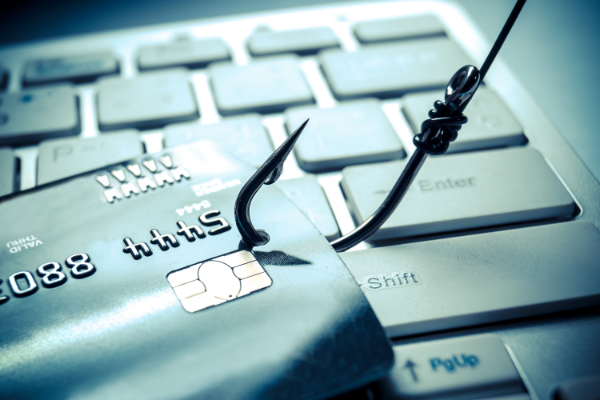Insights
INSIGHTS
All Topics
How to prepare for Charity Fraud Awareness Week
19 Oct 2021by Joe Lepper
Charities are being urged to get involved in Charity Fraud Awareness Week to highlight ways the sector can combat fraudsters and cyber criminals
The 2021 Charity Fraud Awareness Week has the strapline "We Can Do This" to hammer home the message that criminals can be prevented from targeting charities through a strong focus on security.
A raft of charity sector and crime prevention organisations are involved in the event including the Charity Commission, Cyber Scotland Partnership, and Fraud Advisory Panel.
“All charities, NGOs, and not-for-profits are susceptible to fraud and can be targeted,” warns the Charity Commission. “Those providing services and supporting local communities may be especially vulnerable to fraudsters attempting to exploit current national and global crises to carry out fraud and cybercrime.
“This means that now – more than ever – charities need to be fraud aware and take steps to protect their money, people, and assets from harm.”
Here we look at how charities can get involved in the annual event. We also look at evidence showing the pressing need for charities to take action to counter fraud, due to increasing threats from cyber criminals.
Get involved online
Social media once again plays a strong role in promoting messages around cyber security through this annual event.
For any posts involving the campaign use the hashtag #StopCharityFraud, say organisers.
In addition, a Charity Fraud Awareness Week supporters pack with free content has been made available. This involves social media graphics, including animation for all platforms, as well as content for LinkedIn, Facebook, and Twitter.
The supporters pack also contains website banners, posters and an email signature to further promote the campaign inline.
Charity Fraud Awareness Week is only 3 weeks away (18 – 22 October 2021)
— CyberScotland (@CyberResScot) September 30, 2021
If you are a charity trustee, staff member, volunteer or professional advisor then download the supporters pack with information on how to get involved and help #StopCharityFraudhttps://t.co/c0m9nlt13I pic.twitter.com/kmklqoLRVR
Also, charities will be asked to sign up to a new fraud pledge, with further details to be released ahead of the week.
Other suggestions for charities include releasing an article on their website on security and sharing top fraud prevention tips.
Mainstream media, such as newspapers and broadcasters, should not be forgotten too. Releasing a press release highlighting the charity’s commitment to the campaign is also advised.
Include staff
Staff are central to charities’ efforts to tackling fraud. They can be charity leaders’ eyes and ears on the frontline, able to raise concerns over suspicious financial activity taking place. This could be among staff themselves involved in fraud, or external threats from criminals.
Charity Fraud Awareness Week organisers are urging charities to engage their staff to be aware of the risks and help in the fight against crime.
Suggestions include running a staff fraud awareness training session to make them aware of the risks.
A staff quiz on how to tackle fraud is another suggestion, as are team meetings and reminders to staff of key policies within the charity around security.
Advice to staff includes:
- Keeping software updated. Updating software is vital to keeping criminals at bay as updates can often involve improved security features
- Using strong passwords. This should be complex, involve numbers, letters and symbols. Using a password management application can help organise secure passwords
- Social media caution. Charity workers are advised not to divulge too much personal information on social media that can be used to help criminals gain access, such as mother’s maiden name or pet’s name
- Phishing is among risks charities face. This is where criminals send fake emails pretending to be reputable to gather financial information, including passwords and credit card numbers
Charities increasingly targeted
A series of reports have highlighted the threats charities face from cyber criminals. The threats have escalated in recent years due to an increased use of digital by charities. Criminals have also become more sophisticated in their attacks.
According to the Department for Digital, Culture, Media and Sport (DCMS) report, Cyber Breaches Survey 2021, more than a quarter (26%) of charities have been attacked by cyber-criminals in the previous 12 months.
Larger charities, which conduct more of the business online, are more likely to be victims of cyber-attacks. Such attacks were cited by more than half (51%) of high-income charities. Of those targeted, 23% experienced a breach at least once a week. The most common threats are phishing, which is experienced by more than three quarters of charities affected by cybercrime.
In around a fifth of cases, charities ended up losing money, data or other assets, the DCMS report found.
Meanwhile, a separate report, published by charity sector insurer Ecclesiastical in October 2020 found that a third of charities had suffered a cyber-attack during the COVID-19 pandemic.
The insurer found that one in seven charities had been the victim of phishing, while 5% had been impacted by malware.
Ecclesiastical charity director Angus Roy said: “The move to remote working has presented technological challenges for all organisations, and this has created opportunities for cyber-criminals. Like everyone else, charities can be susceptible to fraud and cyber crime.”
Joe Lepper
More on this topic
Recommended Products
Featured Products
19 Dec 2024by Christine Chiu
How to recruit digital volunteers
17 Dec 2024by Josie Sparling
Podcast: How to make your social media accessible and inclusive
16 Dec 2024by Jenny Phipps
Cyber security: what to look out for in 2025Sponsored Article
10 Dec 2024by Laura Stanley
How to revisit your charity’s storySponsored Article
Our Events
Charity Digital Academy
Our courses aim, in just three hours, to enhance soft skills and hard skills, boost your knowledge of finance and artificial intelligence, and supercharge your digital capabilities. Check out some of the incredible options by clicking here.




















